Gérard Depardieu Is Ordered to Stand Trial Over Rape Accusations

© Gonzalo Fuentes/Reuters


© Gonzalo Fuentes/Reuters


In a report on 31 August, the Institute for the Study of War (ISW) outlined how the Kremlin has intensified its multi-pronged information campaign to weaken Western support for Ukraine and derail the European role in peace efforts in the ongoing Russo-Ukrainian war.
Russia is now aggressively pushing three narrative lines at once: blaming European states for prolonging the war, reviving nuclear threats, and portraying Russian victory as inevitable.
Kremlin officials have returned to a long-standing propaganda line that paints European states as obstacles to peace in Ukraine. ISW noted that Kremlin spokesperson Dmitry Peskov and Russian Direct Investment Fund (RDIF) CEO Kirill Dmitriev recently implied that European countries are deliberately extending the conflict. According to ISW, Russia is using Dmitriev—who frequently represents Kremlin interests on Western platforms—to reintroduce this message into the Western media environment, aiming to erode US confidence in European allies.
On 31 August, Russian Security Council Chairperson Dmitry Medvedev launched a pointed attack against French President Emmanuel Macron and German Chancellor Friedrich Merz. Posting on his English-language X account, Medvedev accused the two leaders of having “forgotten the lessons” of World War II. He warned that “things could end up like they did in 1945 – [Macron and Merz] too may end up being identified by their teeth,” directly invoking the atomic bombings of Hiroshima and Nagasaki. Medvedev also described recent Russian military progress as “bad news” for the European leaders.
ISW assessed that this language is intended to threaten France and Germany with nuclear consequences for their involvement in US-led efforts to end the war, while simultaneously amplifying the idea of unstoppable Russian military momentum.
Alongside these threats, the Kremlin continues to push the idea that Russian victory in Ukraine is certain. ISW reported that the Russian Ministry of Defense has ramped up its efforts to project battlefield success using large volumes of qualitative data. However, ISW assessed that these claims are inflated and part of the broader strategy to demoralize Ukraine’s allies and reduce Western resolve.


© Cy Liu for The New York Times






© Sophie Bassouls/Sygma, via Getty Images


© Dave Sanders for The New York Times


© Dave Sanders for The New York Times


© Abdul Saboor/Reuters


© Ludovic Marin/Agence France-Presse — Getty Images


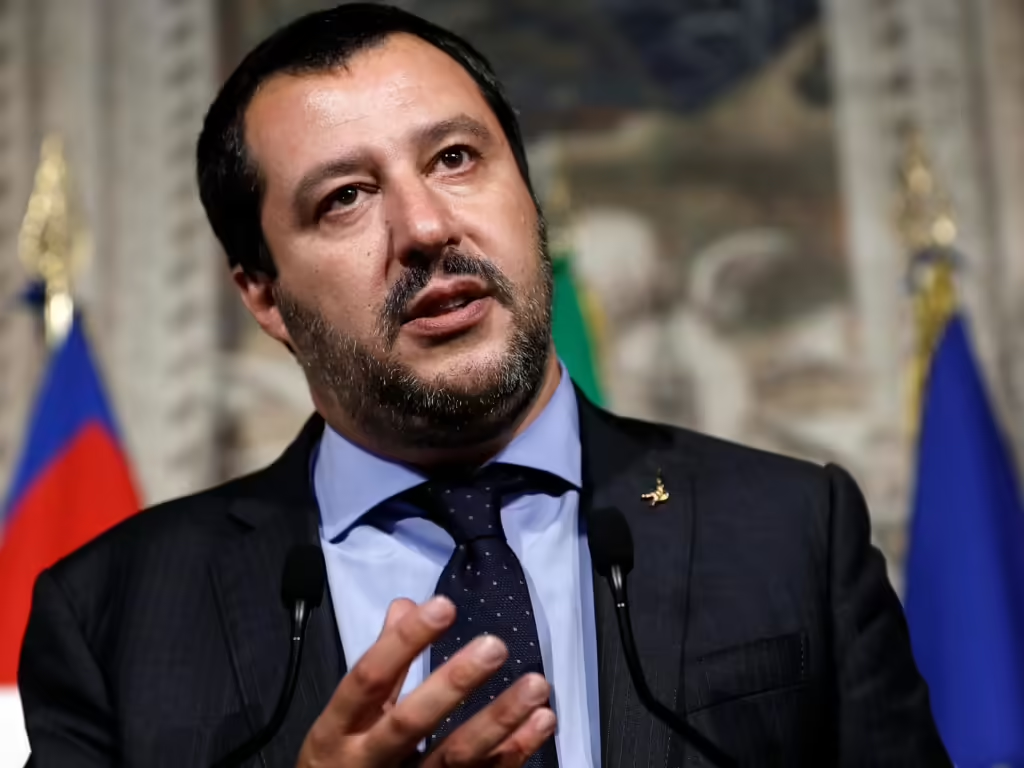

Italy’s ambassador to France, Emanuela D’Alessandro, was summoned to the French Foreign Ministry on 21 August, following what Paris deemed “unacceptable” remarks by Italian Deputy Prime Minister Matteo Salvini toward Emmanuel Macron, France Inter and Radio France’s international desk reported on 22 August.
During a speech on 20 August, Salvini criticized the French president over his support for the idea of sending troops to Ukraine.
“Italian soldiers in Ukraine? Absolutely not. If Emmanuel Macron wants it, let him go himself. Put on a helmet, take a rifle and go to Ukraine yourself,” the Italian vice-premier said.
According to a diplomatic source contacted by France Inter, during the ambassador’s summoning to the Quai d’Orsay, “she was reminded that these remarks went against the climate of confidence and the historical relationship between our two countries.” The source said these statements undermine “recent bilateral developments, which have highlighted strong convergences between the two countries, particularly regarding unwavering support for Ukraine.”
Neither Italian diplomacy nor the services of Italy’s Prime Minister Giorgia Meloni wished to comment when contacted by Radio France’s international desk on 22 August.
This marks the second time Salvini, who maintains close ties with Marine Le Pen, has verbally attacked Macron over Ukraine support. On 7 March 2025, during a trip to Milan, he called the French president “crazy,” accusing him of pushing Europe toward war with Russia.
The diplomatic incident occurs amid broader discussions about security guarantees for Ukraine. US Special Representative Steve Witkoff said that during a meeting in Alaska, Russian leader Vladimir Putin and Donald Trump agreed on “reliable security guarantees” for Ukraine, including protection analogous to NATO’s Article 5.
Following these developments, a “coalition of the willing” has expressed readiness to play a role in providing security guarantees for Ukraine by deploying military contingents on its territory. However, the nature of US support remains unclear. The White House has said Washington “can certainly help coordinate and possibly provide other means of security guarantees.”
Trump emphasized that the US would not send its military personnel but did not rule out assistance with “air transport” for allies. The Wall Street Journal reported that US Secretary of State Marco Rubio will head a working group of national security advisors and NATO representatives to develop a security guarantee project for Ukraine.


















© Doug Mills/The New York Times


© Kenny Holston/The New York Times


© Kenny Holston/The New York Times


© Kenny Holston/The New York Times
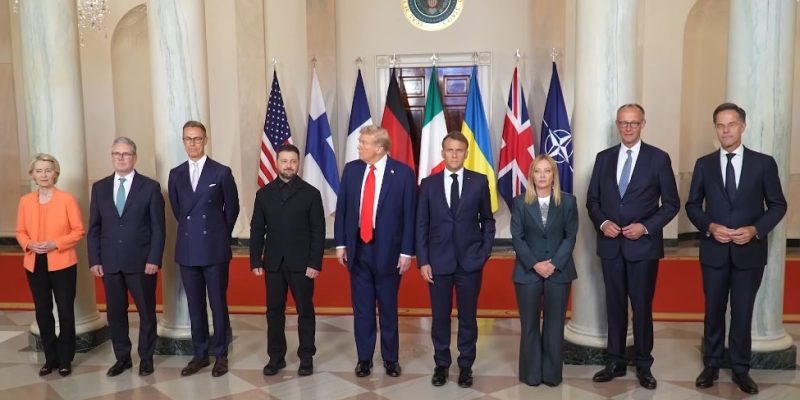

Le président ukrainien a rencontré hier Donald Trump à la Maison-Blanche – Zelensky était d’abord seul, puis avec ses principaux alliés européens.
Trump s’est ensuite entretenu à distance avec Vladimir Poutine; puis, il a annoncé une future rencontre entre Poutine et Zelensky, qui serait suivie d’une rencontre à trois.
Volodymyr Zelensky a confirmé qu’il était prêt à rencontrer Poutine.
Trump a indiqué qu’après un éventuel accord de paix, les pays européens fourniraient à l’Ukraine des garanties de sécurité «en coordination avec les États-Unis».
[L'article Poutine et Zelensky seraient prêts à se rencontrer a d'abord été publié dans InfoBref.]


© Pool photo by Ben Stansall


© Dmitry Kostyukov for The New York Times
Le président ukrainien doit rencontrer Donald Trump à la Maison-Blanche, trois jours après la rencontre du président américain avec Vladimir Poutine en Alaska.
Les principaux dirigeants européens accompagnent Zelensky aux États-Unis, y compris ceux de la France, du Royaume-Uni, de l’Allemagne et de l’Otan.
La Russie aurait, selon le gouvernement américain, accepté que les États-Unis et les Européens donnent à l’Ukraine une garantie de sécurité comparable à la défense mutuelle qui existe entre les membres de l’Otan.
En contrepartie, Moscou voudrait que l’Ukraine lui cède les régions de Donetsk et Louhansk, qui forment ensemble le Donbass.
[L'article Volodymyr Zelensky et ses alliés européens sont à Washington aujourd’hui a d'abord été publié dans InfoBref.]


Lessons of the past 30 years cannot be ignored. French President Emmanuel Macron calls to taking into account all the lessons of the past three decades, particularly Russia’s history of ignoring its commitments after the meeting between Donald Trump and Vladimir Putin in Alaska, which ended without a peace agreement or sanctions on Moscow.
“It will also be essential to draw all the lessons from the past 30 years, in particular from Russia’s well-established tendency not to honor its own commitments,” Macron claims.
He added that, together with Trump and Zelenskyy, he will act “in a spirit of unity and responsibility,” supporting Ukraine and maintaining pressure on Russia as long as its aggression continues.
According to Macron, any long-term peace must be based on unwavering security guarantees and respect for Ukraine’s rights. The French president emphasized the unity of European and Western leaders on this matter.
Macron also welcomed the US willingness to contribute to strengthening peace.
“We will work on this with them and all our partners within the Coalition of the Willing, with whom we will meet again soon to achieve concrete progress,” the French president adds.


© Associated Press






© Agence France-Presse — Getty Images


© by Josh Holder


© Leon Neal/Getty Images
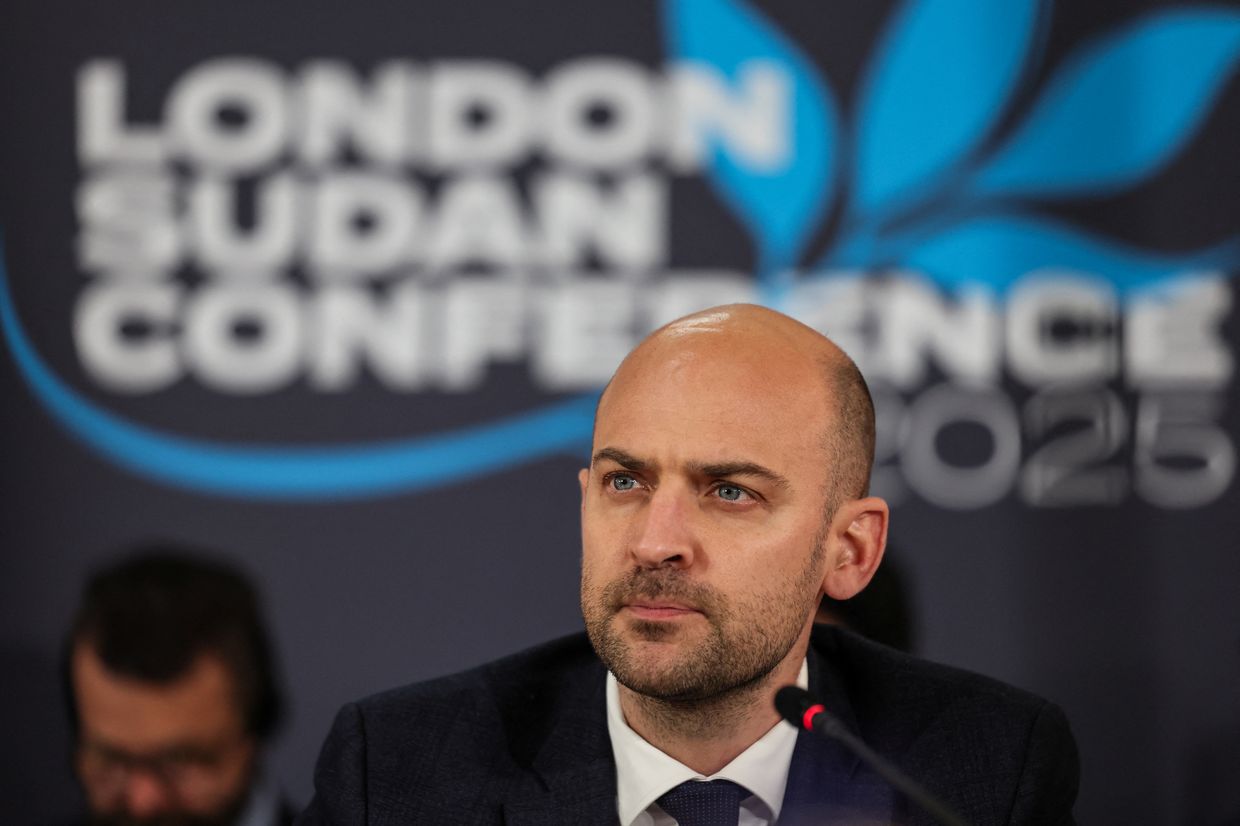

The EU will introduce the "toughest sanctions... imposed (on Russia) in the last three years" in coordination with U.S. senators, French Foreign Minister Jean-Noel Barrot said in a television interview on July 7.
"(Russian President Vladimir) Putin is no longer advancing on the front and is now limited to shelling residential areas with drones and missiles. This is leading to numerous casualties among the civilian population. This must stop," Barrot said.
U.S. Senator Lindsey Graham said on June 29 that U.S. President Donald Trump was ready for the Senate to vote on a bill to impose new sanctions on Russia. The Republican senator has repeatedly called for implementing additional sanctions against Moscow.
Barrot noted the EU is planning to impose the strongest sanctions against Russia that the bloc has introduced since 2022.
"This (war) cannot continue; it must stop. To achieve this, in coordination with American senators, Europe is preparing to introduce, based on French proposals, the toughest sanctions we have imposed in the last three years," he said.
"They will directly deplete the resources that allow Vladimir Putin to continue his war," Barrot added.
In the U.S., senators have been working on a sanctions bill, with Graham saying voting on a bill is expected to begin following the end of the July congressional break.
Graham, earlier on July 7, said he expects "the Senate will move the bipartisan Russian sanctions bill that will allow tariffs and sanctions to be placed on countries who prop up Putin’s war machine and do not help Ukraine."
The bill led by Graham has been in the works for several months as the White House has failed attempts to broker a peace deal between Ukraine and Russia.
"Ukraine has said yes to ceasefires and to any and all meeting requests while Putin continues to defy peace efforts. It is now time to put more tools in President Trump’s toolbox in order to end the war," he said.
Russia has relied on its partners, including Belarus, China, and Iran, for trade and to bypass Western sanctions meant to inhibit Moscow's ability to continue its war against Ukraine.
 The Kyiv IndependentThe Kyiv Independent news desk
The Kyiv IndependentThe Kyiv Independent news desk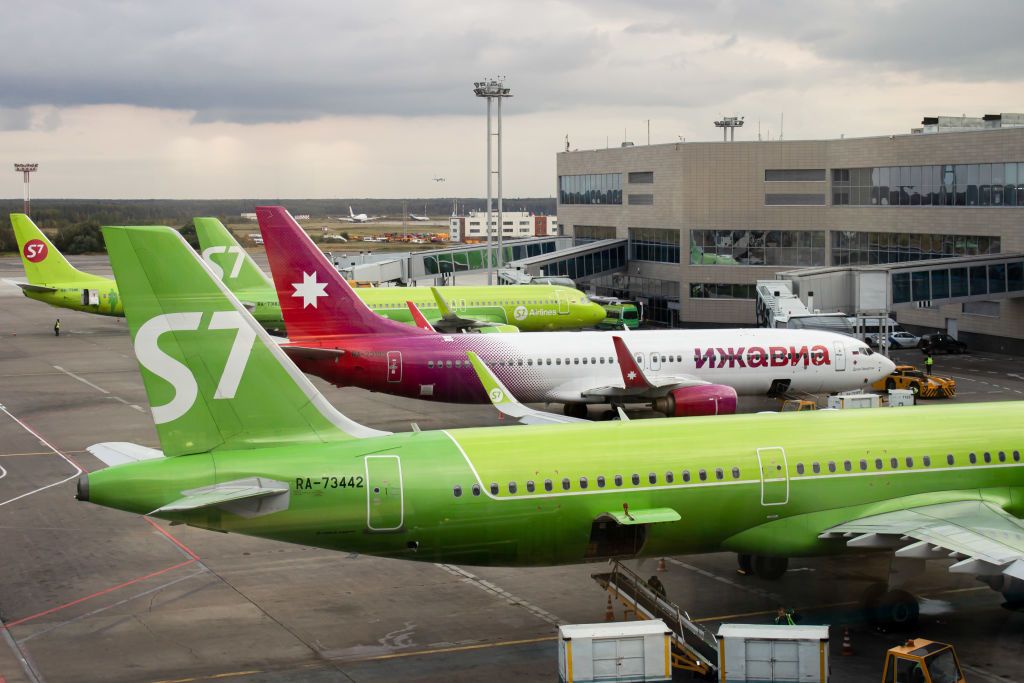


BlackRock, a U.S. investment firm, suspended work on a multibillion-dollar Ukraine recovery fund following U.S. President Donald Trump's election victory, prompting France to work on a replacement, Bloomberg reported on July 5.
The plan nearly secured the initial support of institutions backed by the governments of Germany, Italy, and Poland, people familiar with the matter told Bloomberg.
Kyiv has sought to secure investment in Ukraine's reconstruction as Russia's war continues to destroy infrastructure across the country.
BlackRock halted its search for institutional investors in January, causing the planned funding that sought to secure $500 million from governments, development grants, and investment banks, and another $2 billion from private investors, to fall through.
The investment firm halted talks with institutional investors in January due to a lack of interest amid perceived uncertainty in Ukraine.
The fund was set to be unveiled by BlackRock at the upcoming Ukraine Recovery Conference on July 10-11 in Rome, Bloomberg reported.
A spokesperson for BlackRock said the investment firm completed advisory work for the recovery fund pro bono in 2024 and no longer has "any active mandate."
France is working on a proposal to replace the recovery fund led by BlackRock, people familiar with the matter told Bloomberg, adding that it remains uncertain how effective the plan will be without Washington's backing.
President Volodymyr Zelensky and Italian Prime Minister Giorgia Meloni are expected to attend the Ukraine Recovery Conference next week.
Despite a partial rebound from a 30% economic slump in 2022, foreign investment in Ukraine remains underwhelming.
 The Kyiv IndependentDominic Culverwell
The Kyiv IndependentDominic Culverwell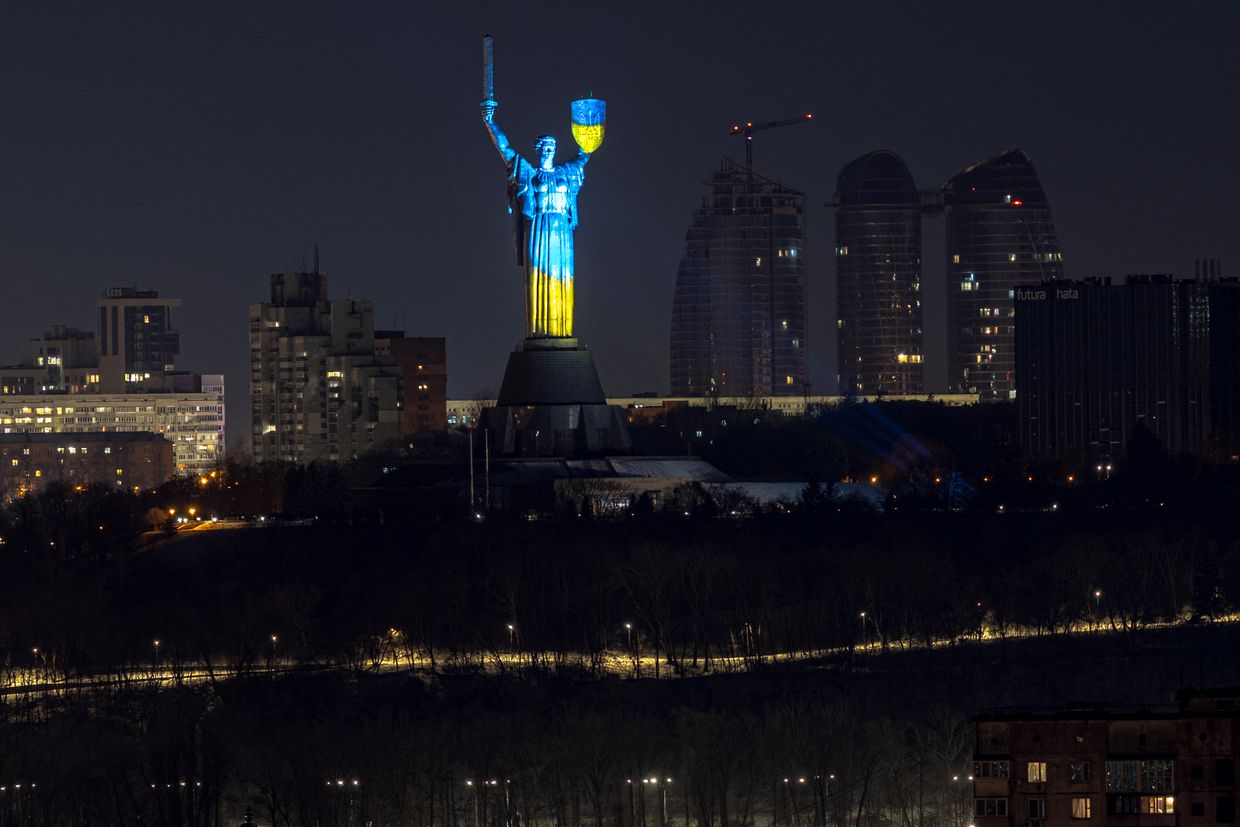
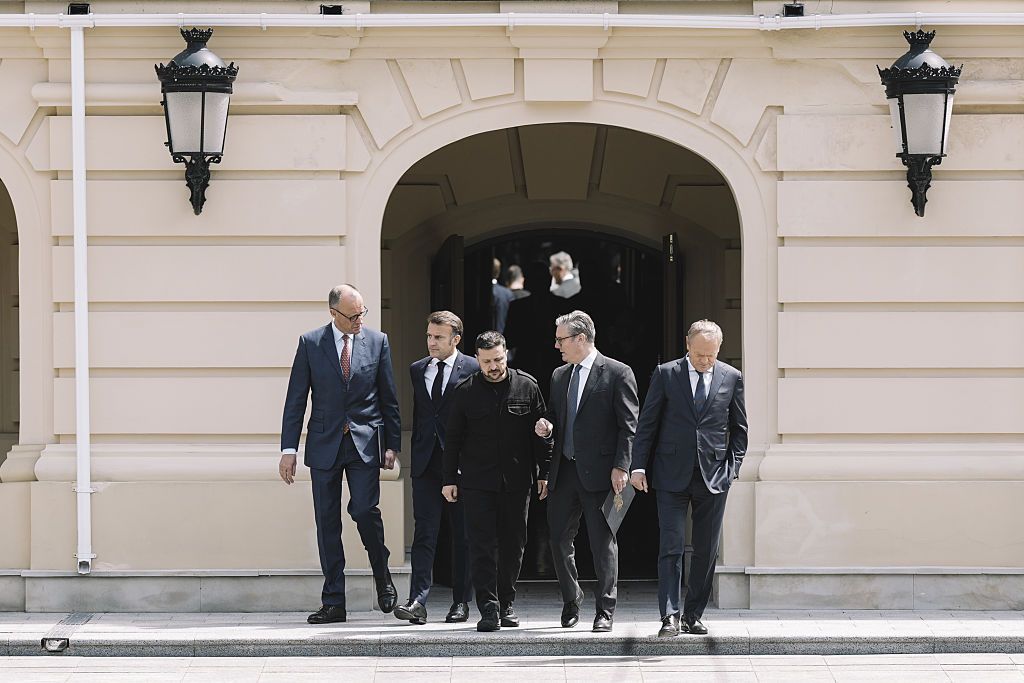

The British and French-led "coalition of the willing" is set to meet in the U.K. next week, Politico reported on July 4.
"On the agenda, there's how to maintain Ukraine in a capacity to fight, how to increase pressure on Russia, and how to continue the work on the next steps," an unnamed French official told Politico.
As Washington's intensified efforts to broker a ceasefire in Russia's war against Ukraine failed, two rounds of largely inconclusive peace talks between Kyiv and Moscow took place in Turkey.
Following various failed attempts to obtain a ceasefire or peace deal, the coalition will meet again on July 10.
The French official told Politico that the priorities of the "coalition of the willing" have not changed, and will continue to focus on Ukraine's military needs.
The meeting will be led by U.K. Prime Minister Keir Starmer and French President Emmanuel Macron, with President Volodymyr Zelensky and various leaders joining virtually, the official said.
The "coalition of the willing" has met repeatedly to determine potential security guarantees and a peacekeeping force for Ukraine. Leaders of 31 nations met in Paris on March 27 at a summit for the coalition.
Several countries, including France and the U.K., which lead the coalition, have pledged to send troops on the ground to enforce a potential ceasefire.
 The Kyiv IndependentKateryna Hodunova
The Kyiv IndependentKateryna Hodunova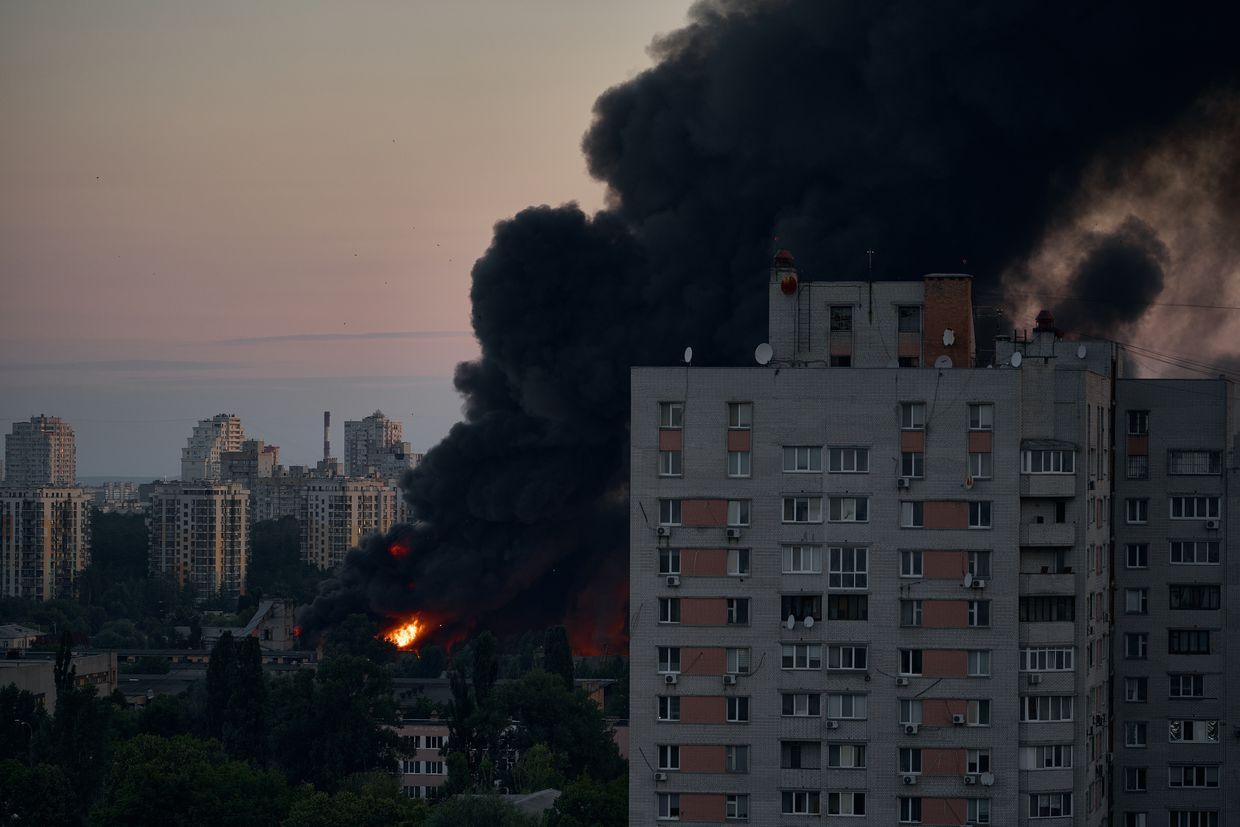
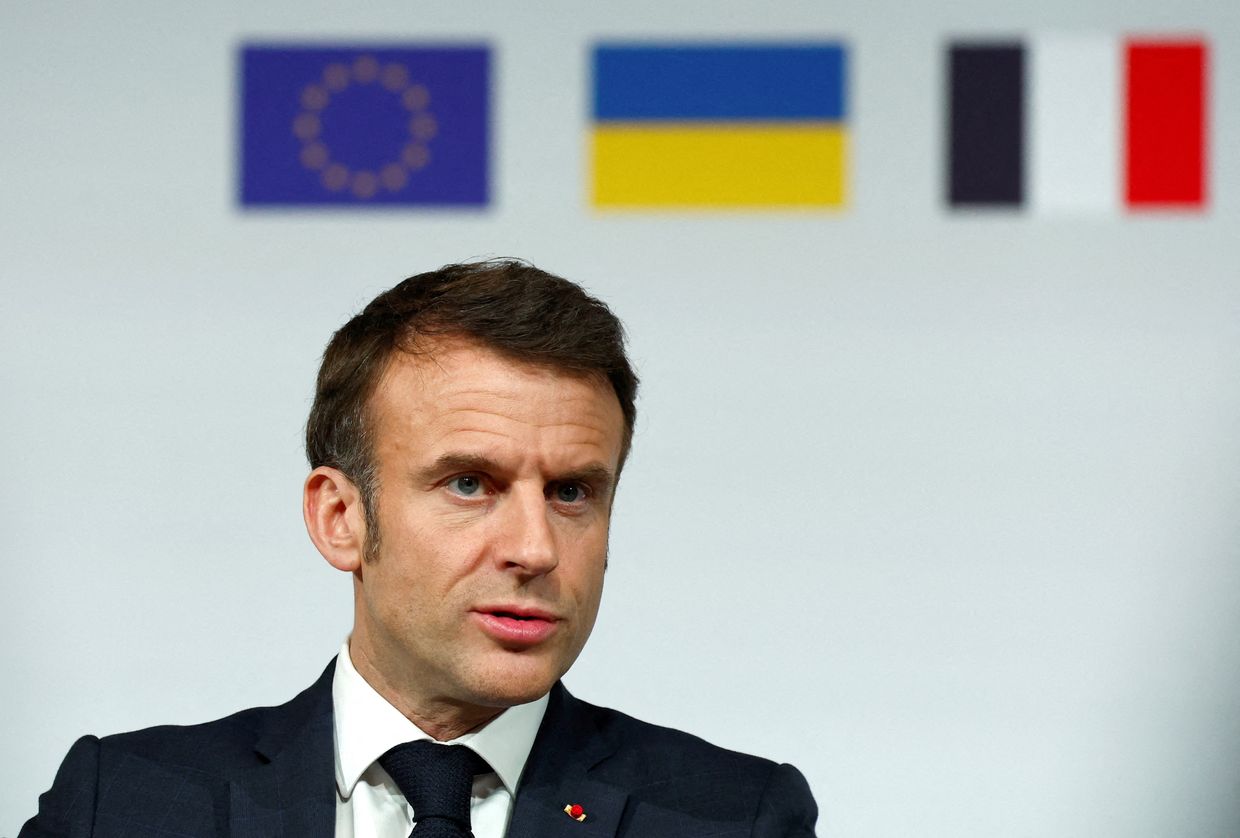

Editor's note: The story was updated as the President's Office confirmed that following the call with Vladimir Putin, Emmanuel Macron also called Volodymyr Zelensky.
French President Emmanuel Macron and his Russian counterpart Vladimir Putin held a call on July 1 for the first time since 2022, discussing Russia's war against Ukraine and the conflict in the Middle East, the Kremlin's press service reported.
The conversation between the two leaders took place as the Russian army continues to advance along the front line, trying to gain a foothold in Sumy Oblast and enter Dnipropetrovsk Oblast.
Moscow has repeatedly rejected the U.S.-backed ceasefire proposal, stalling peace talks with Ukraine.
Following the call with Putin, Macron also called Zelensky to discuss his conversation with the Russian president, a source in the President's Office told the Kyiv Independent.
The call between Zelensky and Macron was "constructive," the source added. Putin's position remained unchanged: he does not show any willingness to end the war in Ukraine, according to the source.
The call between Putin and Macron lasted over two hours, BFM TV reported, citing the Elysee Palace.
During the conversation with Macron, Putin called Russian war "a direct consequence of the policy of Western powers" that "ignored Russia's security interests, created an anti-Russian bridgehead in Ukraine," the Kremlin said.
Macron, in turn, noted France's unwavering support for Ukraine's sovereignty and territorial integrity, Suspilne reported, citing the Elysee Palace.
The French president also called for "a ceasefire to be established as soon as possible and for negotiations to begin."
The leaders will continue to discuss Russia's war in Ukraine, according to the Elysee Palace.
The presidents also discussed the situation in the Middle East regarding the Iranian-Israeli conflict and the U.S. strikes on Iranian nuclear facilities.
Macron frequently called Putin in the first year of Russia's full-scale invasion of Ukraine. Their previous call took place in September 2022.
 The Kyiv IndependentOleg Sukhov
The Kyiv IndependentOleg Sukhov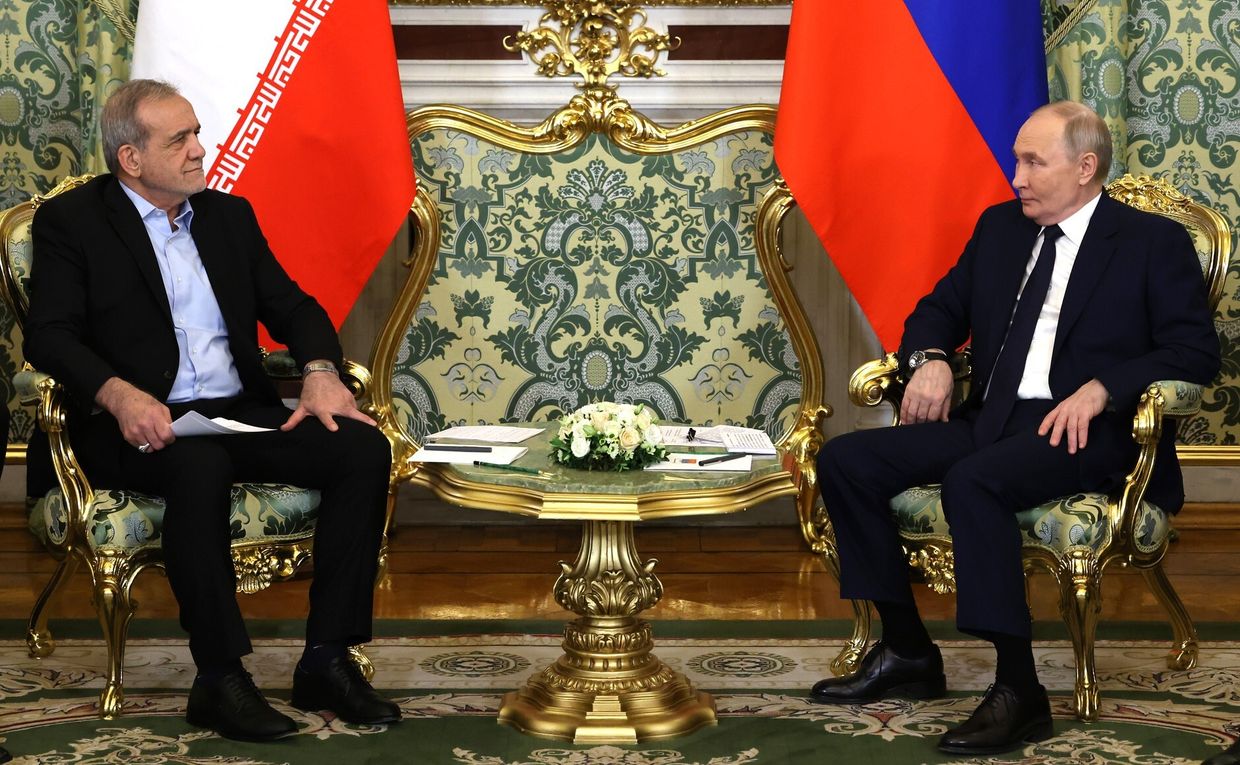


The European Union and its allies are ready to toughen sanctions on Russia, French President Emmanuel Macron said on the sidelines of the Group of Seven (G7) summit on June 17.
"With President (Volodymyr) Zelensky at the G7. We stand in solidarity with the Ukrainian people after last night’s massive Russian strikes," Macron said in a post to social media.
"We are determined to increase pressure on Russia to accept the immediate and unconditional ceasefire that Ukraine is ready for," he added.
Macron attended the G7 summit in Kananaskis, Canada, from June 15-17. Global leaders discussed a wide range of topics, including Russia's war against Ukraine.
As the G7 leaders met in Canada, Russia launched one of its worst drone and missile attacks on Kyiv since it began its full-scale war against Ukraine in February 2022, killing 16 people and injuring at least 134.
"The common position that is emerging is to say, 'We need to strengthen sanctions,'" CBC News reported, citing Macron.
Europe is proposing much tougher sanctions than the U.S. has imposed on Russia, Macron said, adding that the EU is in "very close co-ordination" with Canada, Japan, and the U.K.
Several countries, including Canada and the U.K., introduced additional sanctions on Russia as the G7 summit was ongoing.
Canada introduced a new military aid package for Ukraine in addition to its sanctions against Russia.
"In our view, this has changed the situation because it will allow us to bring Russia back to the negotiating table, as (U.S.) President (Donald) Trump has been demanding," Macron said, according to CBC News.
Zelensky attended the summit and met with various leaders, including Macron and Canadian Prime Minister Mark Carney.
Zelensky left the summit early, citing Russia's attack on Kyiv. The nearly nine-hour-long attack saw Moscow's forces launch large numbers of drones and missiles at Ukraine's capital.
Foreign Minister Andrii Sybiha condemned the attack, calling it a "massive and brutal strike" timed deliberately to coincide with the G7 summit.
Zelensky described the drone and missile assault as "one of the most horrifying attacks on Kyiv."
 The Kyiv IndependentKateryna Denisova
The Kyiv IndependentKateryna Denisova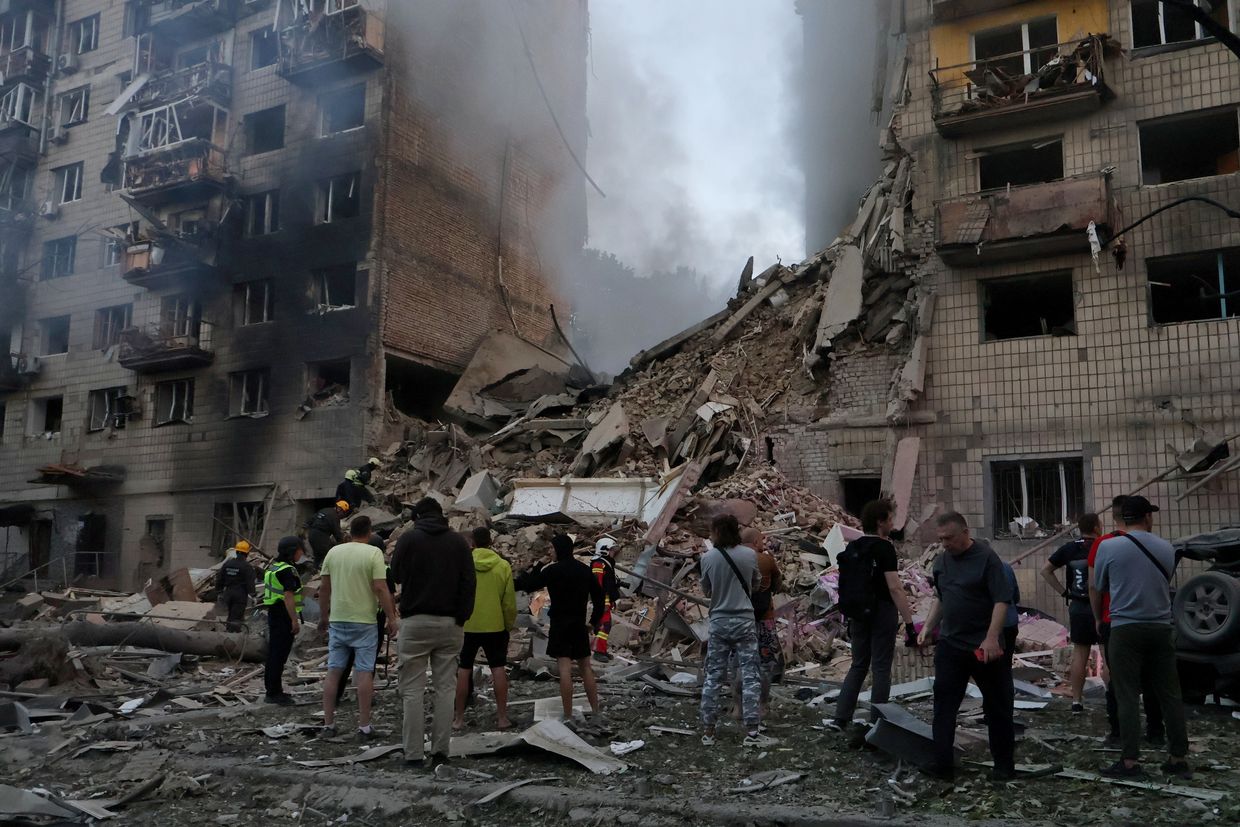


Nine Ukrainian students remain hospitalized following a deadly bus accident in France that killed three Ukrainian nationals and injured dozens more, Ukrainian officials confirmed on June 14.
The group, made up of students and teachers from Chernivtsi Oblast, was returning from an academic exchange when their bus veered off the road in the Sarthe department of France on June 13.
While en route to Paris, the bus veered off the road for reasons still under investigation and flipped into a ditch. In addition to the four fatalities, French media reported nine people were seriously injured and 18 sustained minor injuries.
According to Ruslan Zaparaniuk, governor of Chernivtsi Oblast, nine Ukrainian students remain hospitalized, though their conditions are stable. "All other people have received the necessary support, food, and temporary shelter and are now in safe locations," he wrote on Facebook.
Zaparaniuk noted that Ukraine's Embassy in France is organizing the logistics to help the children return home and is assisting parents wishing to travel to France to visit their hospitalized children.
Ukraine's Embassy in France said that a diplomatic team, led by Ambassador Vadym Omelchenko, traveled to the crash site and remains in Sarthe to support victims and coordinate with French authorities.
According to the embassy, two people injured in the crash remain in critical condition. All other victims are receiving medical treatment and support from Ukrainian and French teams.
President Volodymyr Zelensky expressed condolences in a June 13 statement, calling the accident "terrible news" and thanking French authorities for their solidarity and rapid response.
 The Kyiv IndependentLucy Pakhnyuk
The Kyiv IndependentLucy Pakhnyuk


Three Ukrainian nationals were killed in a bus accident in France on June 13, President Volodymyr Zelensky confirmed in a statement on Telegram.
"Terrible news about the tragic bus accident in France," Zelensky wrote.
The accident occurred in the morning of June 13, near the Sarthe department of France. The bus was reportedly carrying Ukrainian nationals, including adults and children, who were returning from an educational exchange.
While en route to Paris, the bus lost control and flipped into a ditch.
Four adults were killed in total – three of whom were Ukrainian nationals. French media reported that nine people sustained serious injuries, while an additional 18 suffered minor injuries.
Zelensky added that Ukraine's Foreign Ministry promptly sent a team of diplomats and consuls, led by the ambassador to France, to assist survivors and support the victims’ families. The team is coordinating with French authorities and emergency services at the scene.
Foreign Minister Andrii Sybiha and Interior Minister Ihor Klymenko are providing regular updates on the victims' conditions and emerging details regarding the accident.
Zelensky thanked the French authorities, noting that "more than 50 emergency teams were deployed" in what he called "a true expression of French solidarity."
He also expressed his "condolences to all the families of the victims" and wished for a "speedy recovery of the injured children."
 The Kyiv IndependentMartin Fornusek
The Kyiv IndependentMartin Fornusek